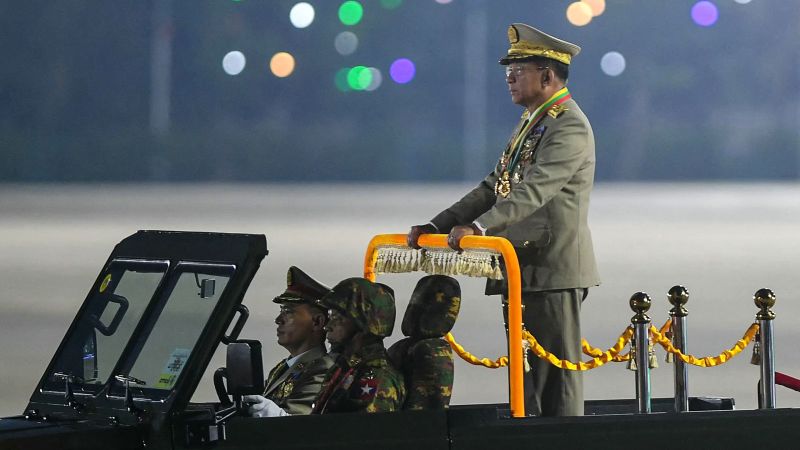A letter from former US President Donald Trump announcing a new tariff on Myanmar’s exports has been met with unexpected enthusiasm from the country’s military junta. Senior General Min Aung Hlaing, who has led Myanmar since a military coup in 2021, expressed “sincere appreciation” for the communication, viewing it as a sign of recognition for the junta’s leadership amid international isolation.
The letter, reported by state media Global New Light of Myanmar, outlines a 40 percent tariff rate on Myanmar’s exports to the United States, effective from August 1, 2023. While such tariffs typically signal economic strain, Min Aung Hlaing has framed the announcement as an “encouraging invitation” for his administration to engage with the US economy.
In the wake of the military’s power grab, which has resulted in a prolonged civil conflict, this communication stands out. The junta has faced widespread condemnation from the international community, including sanctions imposed by the United States, the United Kingdom, and the European Union. Most Western nations no longer acknowledge the military as Myanmar’s legitimate government, and many have withdrawn their accredited ambassadors from the country.
Min Aung Hlaing suggested that a negotiation team could be dispatched to the US if necessary, indicating a desire for closer ties. He also urged Washington to reconsider its sanctions, arguing they obstruct mutual interests and prosperity for both nations.
The general’s remarks included praise for Trump’s leadership, emphasizing his commitment to national prosperity and peace on the global stage. He acknowledged Trump’s efforts in regulating broadcasting agencies, a reference to funding cuts to US media outlets like Radio Free Asia and Voice of America. These outlets have been vital sources of independent news in Myanmar, especially following the military’s crackdown on press freedom.
Interestingly, Min Aung Hlaing drew parallels between Trump’s experiences during the contested 2020 US presidential election and claims of electoral fraud in Myanmar. He referred to the elections that led to the victory of Nobel laureate Aung San Suu Kyi and her National League for Democracy party, which were deemed largely free and fair by international observers. The military’s subsequent claims of widespread fraud were the pretext for their coup, which ended a decade-long experiment with democracy.
Since the coup, Suu Kyi has been under military custody, serving a 27-year sentence following a widely criticized trial. The junta’s actions have sparked a civil war, with pro-democracy fighters and ethnic rebel groups continuing to resist military rule across Myanmar.
As the political situation evolves, the implications of Trump’s tariff letter remain uncertain. The US Embassy in Myanmar has been contacted for clarification on the letter’s delivery and its potential impact on US-Myanmar relations. The junta’s interpretation of the letter as a diplomatic opportunity highlights its ongoing struggle for legitimacy and support in a fractured political landscape.
